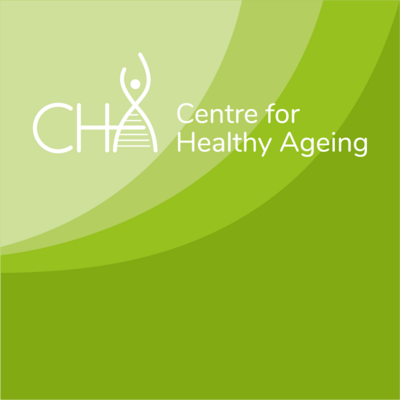Launch of the Centre for Healthy Ageing (CHA)
PRESS RELEASE
01 September – The Institute of Molecular Biology (IMB) announces the launch of the Centre for Healthy Ageing (CHA), a virtual research centre that brings together scientists in Mainz to promote healthy ageing and identify novel treatments for age-related diseases.
Ageing is one of the biggest and most urgent challenges facing modern societies today. In Germany alone, over one-fifth of the population is over 65 years old, and the number will further increase as life expectancies around the world continue to rise. The elderly are at higher risk of developing debilitating, incurable illnesses such as cancer, cardiovascular disease and neurodegeneration, increasing individual suffering and placing a major burden on society.
To address these challenges, Prof. Christof Niehrs (IMB Executive and Scientific Director), Prof. Peter Baumann (Johannes Gutenberg University (JGU)) and Prof. Norbert Pfeiffer (Medical Director of the Mainz University Medical Center) have launched the CHA – a virtual centre to bring together researchers in Mainz that focus on ageing research. The fundamental goal of the CHA is to discover how individuals can age healthily, without developing disease. “We know it is possible to age without disease because of the existence of so-called “super-seniors” – those few lucky elderly individuals who have evaded major age-related chronic diseases into old age and are in the top 1% for health,” says Prof. Niehrs. “But what are the genetic and molecular factors that make these individuals different, and could it be possible to create treatments so that in the future everyone can avoid sickness in old age?” This is the central goal of the CHA – to “promote healthy ageing and to prevent and treat age-related diseases… so that everyone can have a long and healthy life.” Prof. Pfeiffer adds: “Rather than only look at risk factors for age-related diseases, we want to discover factors for healthy ageing, which in return might help us enormously to prevent diseases that we now, once they are there, find very difficult to treat.”
The CHA brings together 39 research groups from four research institutes (IMB, JGU, the University Medical Center (UMC), the Leibniz Institute for Resilience Research), and TRON GmbH, all located in Mainz. They range from clinical research groups studying cancer, cardiovascular disease and Alzheimer’s disease in patients, right down to basic research groups working on the molecular mechanisms of ageing, such as DNA repair, telomeres, epigenetics and protein folding. By bringing them together, the CHA will promote exchange of ideas and the development of novel collaborative endeavours. A major part of the CHA’s research will be the Science of Healthy Ageing Research Programme (SHARP), a joint project between IMB, JGU and UMC that was recently funded by Rhineland-Palatinate’s Ministry of Science and Health.
As Prof. Baumann says, “With the launch of the CHA, we can synergise and accelerate ageing research in Mainz to discover the basis of healthy ageing and develop novel treatments that can prevent age-related diseases. This will in turn help to improve quality of life for ageing societies in Germany and around the world.”
Further details
Further information can be found at https://www.cha-mainz.de/.
About the Institute of Molecular Biology gGmbH
The Institute of Molecular Biology gGmbH (IMB) is a centre of excellence in the life sciences that was established in 2011 on the campus of Johannes Gutenberg University Mainz (JGU). Research at IMB focuses on three cutting-edge areas: epigenetics, developmental biology, and genome stability. The institute is a prime example of successful collaboration between a private foundation and government: The Boehringer Ingelheim Foundation has committed 154 million euros to be disbursed from 2009 until 2027 to cover the operating costs of research at IMB. The State of Rhineland-Palatinate has provided approximately 50 million euros for the construction of a state-of-the-art building and is giving a further 52 million in core funding from 2020 until 2027. For more information about IMB, please visit: www.imb.de.
Boehringer Ingelheim Foundation
The Boehringer Ingelheim Foundation is an independent, non-profit organization that is committed to the promotion of the medical, biological, chemical, and pharmaceutical sciences. It was established in 1977 by Hubertus Liebrecht (1931–1991), a member of the shareholder family of the Boehringer Ingelheim company. Through its Perspectives Programme Plus 3 and its Exploration Grants, the Foundation supports independent junior group leaders. It also endows the international Heinrich Wieland Prize, as well as awards for up-and-coming scientists in Germany. In addition, the Foundation funds institutional projects in Germany, such as the Institute of Molecular Biology (IMB), the department of life sciences at the University of Mainz, and the European Molecular Biology Laboratory (EMBL) in Heidelberg.
Press contact for further information
Dr Ralf Dahm, Director of Scientific Management
Institute of Molecular Biology gGmbH (IMB), Ackermannweg 4, 55128 Mainz, Germany
Phone: +49 (0) 6131 39 21455, Email: press(at)imb.de
